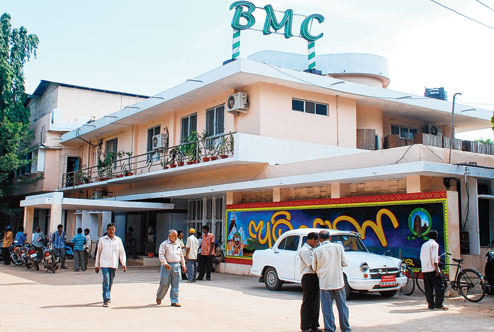Bhubaneswar: Residents of Bhubaneswar heaved a sigh of relief as trucks began disposal of waste at a designated dump yard again from Wednesday after nearly three weeks as villagers lifted a blockade at the site.
Locals of the Daruthenga panchayat, a few kilometres from the city, stopped trucks from dumping waste at nearby Bhuasuni as a 22-year-old man died after he was knocked down by a truck near the site earlier this month.
This led to the temporary transit station in the Odisha capital brimming with garbage, resulting in more time being taken by dump trucks to unload the waste and collect more from the bins.
Barring the posh areas of the city, many streets were stinking with litter scattered around the bins, which were full to capacity. The problem was compounded by intermittent rain.
The protesters were demanding a complete halt to dumping and clearing of waste at Bhuasuni, which has badly affected them. They have been protesting since 2008 when the BMC started dumping waste on a 62-acre land on the basis of the high court directives.
After several rounds of failed meetings over the past fortnight, Daruthenga panchayat head Tapan Chakraborty said on Tuesday that the administration assured them during the fresh talks that it would fulfil all the demands.
Dump trucks of the Bhubaneswar Municipal Corporation (BMC) started taking garbage from the temporary station to Bhuasuni from the morning, with officials hoping that the situation would be back to normal in a few days.
“The dumping of waste at Bhuasuni has started,” Mayor Sulochana Das told reporters.
The city generates around 550 tonnes of garbage per day and all of it will be processed scientifically within the timeline of nine months given to the protesters, Das said.
“After that, we won’t have to dump waste at Daruthenga or any other place,” she said.
Das assured that the civic body would start biomining or scientific management of the old waste in the dump yard once it achieved the capacity of processing all the garbage through composting centres.
Around 300 tonnes of waste are being processed per day currently through 32 micro-composting centres (MCC) and 14 materials recovery facilities.
Nine more MCCs will start by March as the BMC tries to find a permanent solution for Daruthenga, an official said.
Three-four areas have been identified and there is a plan to set up mega MCCs to process around 200 tonnes of garbage, he added.
PTI






































